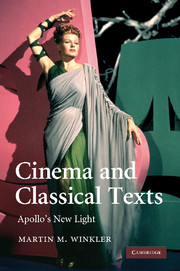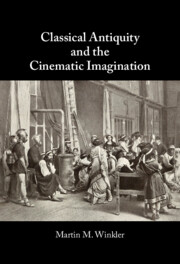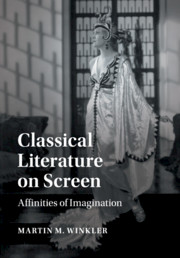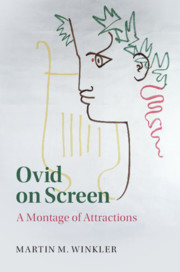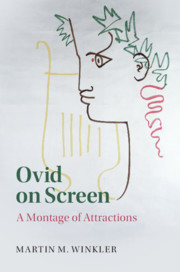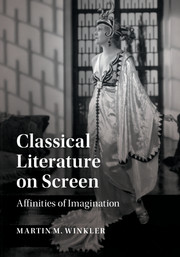Cinema and Classical Texts
Apollo was the ancient god of light and the divine patron of the arts. He is therefore a fitting metaphor for cinematography, which is the modern art of writing with moving light. This book interprets films as visual texts and provides the first systematic theoretical and practical demonstration of the affinities between Greco-Roman literature and the cinema. It examines major themes from classical myth and history such as film portrayals of gods, exemplified by Apollo and the Muses; Oedipus, antiquity's most influential mythic-tragic hero; the question of heroism and patriotism in war; and the representation of women like Helen of Troy and Cleopatra as products of male desire and fantasy. Covering a wide range of European and American directors, genres and classical authors, this study provides an innovative perspective on the two disciplines of classics and cinema and demonstrates our most influential medium's unlimited range when it adapts ancient texts.
Reviews & endorsements
“One of the best known authorities on antiquity in film…reviews various ways in which classical culture has directly or indirectly shaped the medium of film….this book is driven by a principled enthusiasm….It is an important resource…because it makes a compelling case for mutual benefit between film studies and classical studies.” —Classical Review
Product details
February 2009Hardback
9780521518604
362 pages
235 × 157 × 23 mm
0.72kg
Available
Table of Contents
- List of illustrations
- Acknowledgments
- Introduction: the god of light and the cinema eye
- 1. A certain tendency in classical philology
- 2. Divine epiphanies: Apollo and the Muses
- 3. The complexities of Oedipus
- 4. Patriotism and war: 'Sweet and fitting it is to die for one's country'
- 5. Helen of Troy: marriage and adultery according to Hollywood
- 6. Women in love
- Epilogues: 'Bright shines the light'
- Bibliography
- Index.

